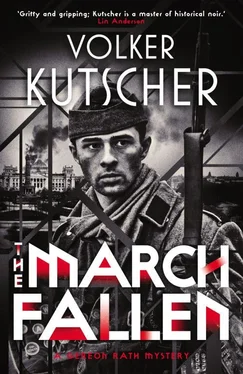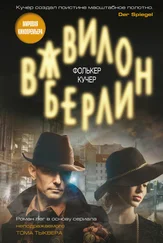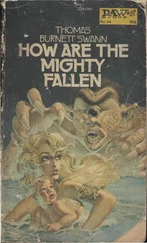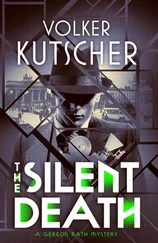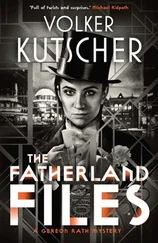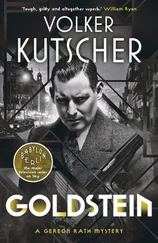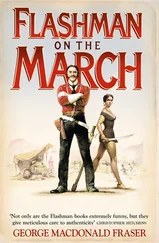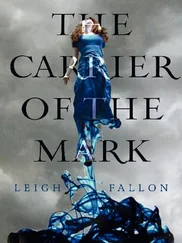Rath pushed close to the balcony and looked up. Konrad Adenauer stood impassively by the railing, and for a brief moment their eyes met. Rath wasn’t sure if Adenauer recognised him, but felt caught out and looked away. He hoped his father hadn’t seen him make his escape.
The parade began to cries of ‘Alaaf’ and children squealed for presents and sweets from the floats until a different, harsher, set of cries cut through the joy. A dozen brownshirts, forcing their way through the crowd towards the town hall, looked serious, out to provoke. The cries of ‘Alaaf’ fell to a series of whispers.
‘Adenauer an die Mauer!’ Adenauer for the firing squad . At first Rath thought he had misheard, but the brownshirts shouted again. ‘ Adenauer an die Mauer!’
Adenauer was inscrutable, as ever. He pretended not to hear them, as if their language were not the language of his generation; as if it were beneath his dignity to respond. Engelbert Rath was near him now, looking nervous. Two uniformed cops accepted the kisses of girls in fancy dress, but otherwise followed the mayor’s lead, seemingly oblivious to what was going on.
Revellers began to look intimidated and parents shielded their children. No one condoned this, but no one dared react.
Rath was no great believer in Adenauer, but would not stand by and watch. Before he could cut in, however, men in the red uniforms of the Cologne Carnival Association encircled the brownshirts. The Rote Funken . The Red Sparks . There was a brief and intense exchange and the SA men left to the jeers of the crowd.
‘Three cheers for the Carnival Association. Kölle…!’
‘Alaaf!’ the crowd responded.
Rath looked up at the balcony. It was the Carnival stick-in-the-mud Adenauer who had initiated the chant .
‘The police have it good here,’ Rath said to one of the cops. ‘You have the Rote Funken as auxiliary officers. In Berlin it’s left to the SA and Stahlhelm.’
‘What do you want, man?’
‘What do you want, Inspector ,’ Rath said, flashing his identification. ‘CID, Berlin.’
‘Enjoy yourself, Sir.’
‘You too,’ Rath replied, without meaning it.
Wrapped in a blanket against the cold February night, Berthold Weinert sat in his attic room on Schumannstrasse, staring at a blank page in his typewriter. He spent all his free time on his manuscript, and right now he had plenty to spare. Many of his stories weren’t picked up, and when they were the news desks paid less than before. Forced to give up his furnished room in Charlottenburg, he had moved into this shabby garret around mid-summer, not anticipating how cold it would get in winter. Times were hard.
His novel, started about a year ago after completing his never-to-be-filmed screenplay and his middling though nevertheless published account of the Graf Zeppelin , was a way of pretending to himself and his landlady that he was gainfully employed. The stupid thing was, of course, that there was no money in novel-writing, and no publisher would give him an advance.
Hearing fire brigade sirens, he reached for the telephone. The fire station was on Linienstrasse, just by Oranienburger Tor, barely a kilometre from his apartment. By their sound, the first tenders must be approaching Karlstrasse.
‘Hello, Siggi! Berthold here. What’s going on? Where…?’
Weinert quickly packed his notepad and pencil, reached for hat, coat, scarf, and gloves and ran into the street. The question was not so much whether the story was big, but how big given the location. An icy wind almost knocked him from his bicycle on the Kronprinz Bridge, but in five minutes he reached Platz der Republik where the first fire engines stood in front of the Reichstag.
He leaned his bike against a tree and looked around at firefighters rolling out hoses and cops holding people back, but no barrier yet. He plunged into the crowd, trying to establish the heart of the blaze. A burst of flame in a window near the main entrance… a ladder was on its way. Broken glass when a firefighter smashed a window with his axe. That must be the Reichstag restaurant. Had the fire broken out in the kitchen? In better times he had dined there with politicians.
A fire in the Reichstag was worth an inside page at least. With luck, and if the firefighters didn’t extinguish the blaze too quickly, it might even yield a major story. He climbed the stairs to the ramp in front of the main entrance, moving quickly but calmly while trying to look official. He could pass for a CID arson investigator, thanks to what he knew from Gereon, his ex-neighbour. Herr Rath had gone a little quiet on the story front recently. Some people had it too good.
Weinert’s gaze was drawn skywards, to the glass dome that crowned the massive building. Suddenly illuminated from inside, it was as if someone had switched on a giant light bulb. Firefighters and police officers stopped with him to look up, grimly fascinated, only to fall into an even more pronounced frenzy. More fire engines arrived, some of which were directed to the other sides of the building.
News that the Reichstag was on fire spread quickly. Police officers cordoned off parts of the square as more pedestrians arrived. The dome shone so bright in the misty winter night; even the golden Victoria on the Victory Column reflected the flames, sending word across the city: the Reichstag is on fire! One by one the glass panes of the dome shattered in the heat.
Weinert hoped his news colleagues would be late on the scene. Best if his story was exclusive!
He hurried to the south wing, where firefighters leapt from their vehicles and rolled out hoses. The entrance was open. He strode determinedly past the abandoned porter’s lodge and climbed upstairs. All he had to do was follow the hoses.
The smell of burning grew more intense. Pulling his scarf over his mouth and nose, he reached the hall where in recent years politicians had mostly debated in vain, since with Hindenburg’s blessing successive governments had done as they pleased. The frosted glass of the swing doors had shattered and a solid wall of flames burned on the other side. The enormous room consisted, in its entirety, of fire. A dim memory from his religious childhood told him that hell looked something like this.
The firefighters kept a respectful distance, hosing water through the doors and into the chamber, but still the heat intensified. Weinert gripped his hat and looked for something to hold onto. No one paid attention to him.
Part of the wooden panelling collapsed, sending sparks upwards like an army of angry glowworms. Entering the chamber was impossible, but he had seen enough, and he had to sell his story before someone beat him to it.
At the telephone booths near the southern entrance, he inserted a coin and asked to be put through to the Scherl-Verlag. He was on good terms with Hefner, the senior duty editor of Der Tag and, besides, he paid the best rate. Once Hefner heard his story, the morning edition would need a major rewrite.
‘Weinert here. The Reichstag is on fire.’
Hefner wasn’t surprised. ‘We’ve sent someone.’
‘Bet he isn’t inside the building though.’
Hefner put him through to a typist, and Weinert dictated his story directly into the receiver. More firefighters entered the building, their frantic, almost shell-shocked faces helping him find the right note, but he was astonished at his own fluency. That’s how it was when reporter’s fever took hold, and the story was big enough all right… He could see himself back in the editor’s chair he had lost three years earlier.
He was almost finished when a group of civilians entered, one of whom he recognised, a furious, fat man in a trenchcoat: President of the German Reichstag, Hermann Göring, recently appointed Reich minister without portfolio and commissar for the Prussian Interior Ministry.
Читать дальше
